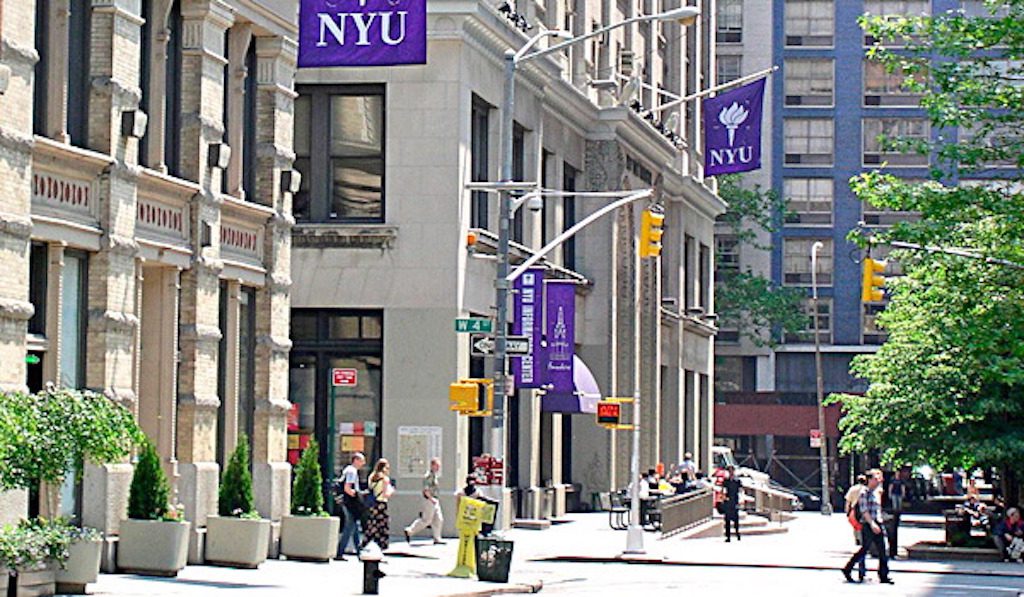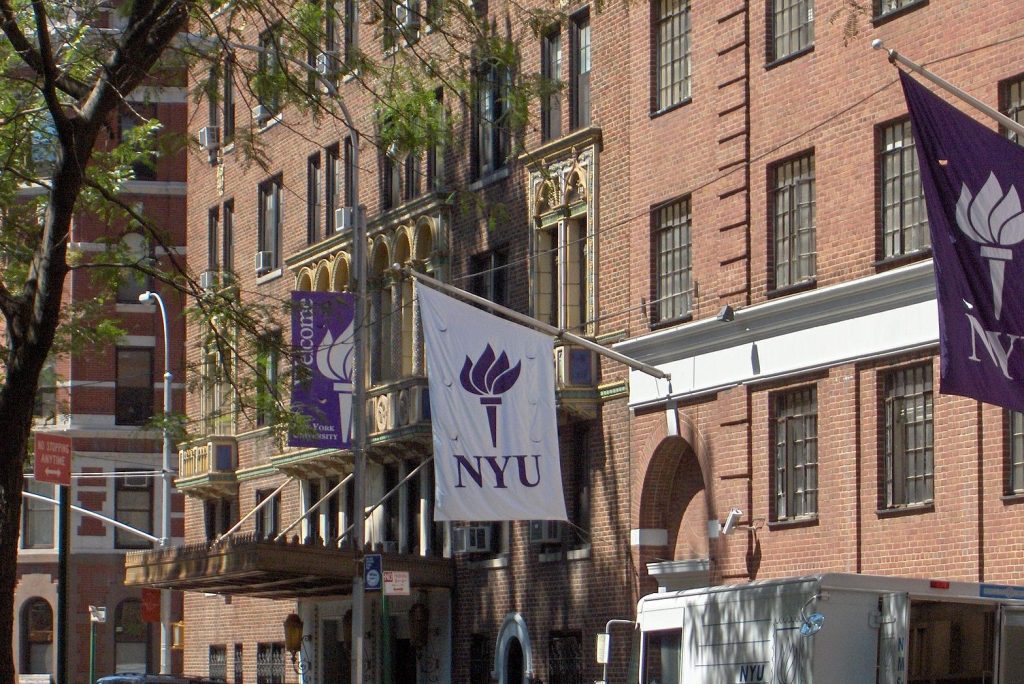Skift Take
With extraordinarily bleak job prospects for the graduating class of 2020, hospitality students have to persevere and find any available opportunity until the travel industry recovers.
It should have been an upbeat spring semester for University of Denver senior Sophia Burge.
After working coveted internships at the Montage Deer Valley ski resort and the Baccarat Hotel in New York City, the hospitality business management student learned in February she had landed her dream job in the management training program at the Four Seasons Resort Oahu at Ko Olina. The only anxiety left on her radar should have been a last round of finals and saying goodbye to friends after graduation.
Then came coronavirus.
“We were about to graduate into one of the best climates for hospitality ever, and it’s just changed drastically,” Burge said.
Get the Latest on Coronavirus and the Travel Industry on Skift’s Liveblog
For now, she is still in an enviable position compared to hospitality majors across the country in the class of 2020. In March, she signed her job contract only to have Four Seasons reach out requesting patience and flexibility due to most of their properties temporarily closing due to coronavirus. Four Seasons told Burge there would be an update on her job scenario sometime in April, she said.
With an expected July start date, Burge is optimistic she’ll keep her job but potentially have to adjust to a later time. Others aren’t as lucky.
Skift talked to students and faculty in hospitality programs at universities across the country, and all said internships had been cut short and job offers rescinded due to the coronavirus downturn in travel zapping the job market.
“You can talk to anyone in this industry, and they’ll say they knew we were coming to the peak, but I didn’t expect it would come as soon as it did,” said Arden Townsend, another senior in the University of Denver’s Fritz Knoebel School of Hospitality Management. “I really thought I’d graduate with a job and hop right in, but I don’t see it happening now. To see everything drop so suddenly was shocking, unexpected, and a little bit frustrating.”
Even more frustrating to some students is the fact they now find themselves competing for job openings with tens of thousands of furloughed employees from global hotel brands like Marriott, Hilton, and Accor. As states issue shelter-in-place orders and public health officials continue to encourage people to socially distance to halt the spread of coronavirus, the travel industry has screeched to a halt.
“My career advisor is telling us to apply for literally anything at this point,” Townsend said. “It’s better to get your foot in the door and get experience rather than wait around for something you’re not sure will come back.”
A Month of Deflated Prospects
Internship programs students applied to in hopes of eventually matriculating into full-time employment have evaporated over the last month, both due to shelter-in-place orders and mass layoffs. Dwindling occupancy led operators to temporarily close hotels and furlough employees.
“When I tell people I’m in hospitality, they usually respond these days with ‘Uh oh,’” said Jamie Weber, a senior in Boston University’s School of Hospitality Administration. “I guess it’s really about marketing ourselves and showing we’re fresh graduates. It won’t be impossible, but it’s certainly going to be harder than the usual difficulty of finding your first job.”
Students at Florida Atlantic University’s hospitality and tourism management program are required to work 1,000 internship hours prior to graduation, but most have been furloughed due to all the surrounding hotel and restaurant closures in south Florida.
“Their jobs are all telling them we’ll get you back as soon as they can. Most of them have compensation for two to eight weeks, and then some can use paid time off,” FAU Hospitality and Tourism Management Director Peter Ricci said. “I expect an onslaught of fear from our May graduates, but I expect many of them will persevere.”
Weber was one month into an internship at a Boston marketing agency when it was called off due to coronavirus. Boston University, like most colleges across the U.S., has since closed campus and moved students to online learning, cutting short the final on-campus semester for students like Weber.
“I’m happy to be home and I’m safe, but it’s upsetting because there’s nothing to look forward to,” she said. “Our college experience is done.”

Boston University hospitality students are finishing out spring semester in online classes due to coronavirus.
Instead of spending her final weeks of college preparing for job interviews in the career counselor’s office or studying for finals in the library with friends, Weber is meeting for classes on Zoom and a little unsure of her next steps. But the transition from lecture halls to class via computer screen isn’t always seamless.
“We’re doing a team project now, so we’re dealing with teammates in four different time zones,” said fellow Boston University senior and hospitality student Shanshan He. “It’s hard to schedule a team meeting. Someone’s in Japan, I’m in Austria, someone’s in Austin, and another person is in Miami.”
When she was on campus in Boston, He frequently attended office hours with professors and built up a network of mentors by introducing herself to faculty members who weren’t even her instructors. But it is difficult to make those kinds of connections via Zoom. Still, she said professors are reaching out and maintaining as much normalcy as can be had over an internet connection.
“Even though it’s not face-to-face, virtual connection is still kind of nice to have,” He said. “We see so many encouraging emails from professors saying to stay healthy. It’s difficult but the reassurance from professors has made it easier.”
Course Correction
Recognizing the hospitality job market is bleak, faculty members from schools like Boston University and New York University have recommended students consider graduate school to avoid the worst of the downturn or even temporarily find work in a field outside hospitality.
“We’ve been actively bringing students together virtually with industry colleagues to offer advice for the future and personal assessments so students can identify and understand their skill sets,” Boston University School of Hospitality Administration marketing professor Leora Lanz said. “We don’t want to lose these passionate students to other fields, but if skills can transcend our industry and it means a job in the short term, then we completely understand. No one will fault students for finding jobs elsewhere; when ready, the industry will welcome them back.”
While graduating seniors remain a priority, universities are also concerned with the academic pipeline and what potential students who are currently in high school may be thinking about the travel industry. Two-thirds of the 701,000 jobs lost in March came from the hospitality sector, according to the U.S. Bureau of Labor Statistics. Analysts expect that number to go significantly higher when they are revised next month, and hospitality schools are concerned ongoing furloughs could spook college applicants into avoiding the industry altogether.
“The fact this industry has been hit so dramatically shows the economic power of hospitality. If we shut down, all else shuts down too,” Lanz said. “This is our message to prospective students who are considering our undergraduate or graduate programs. Our industry is one of passion and holds such economic power globally where our students are certain to make a difference.”
Preparing for a Comeback
Faculty members are bringing coronavirus into daily lessons to offer real-life crisis management training. Ed Salvato, a professor at NYU’s tourism and hospitality marketing graduate program, cancelled the business case study he originally planned this semester in favor of having students follow a brand and analyze their coronavirus recovery strategy.

Faculty at NYU’s graduate hospitality program have incorporate the coronavirus downturn into lessons.
“It’s not that I’m expecting students to come to class with a magic bullet for the industry, but I want to get their heads in that space,” Salvato said. “Ideally, they’re going to be at a job on a group still thinking of recovery into 2021.”
Marketing classes at Boston University began the semester drafting up real advertising plans for some of the city’s restaurants, but that has since evolved into building business strategies on how to bring in revenue while the city continues to mandate no table service and only take-out business, Weber said.
“We’ve kind of turned into crisis PR people because you don’t want to send the wrong message at a time like this,” she added.
Despite their chosen industry suffering a massive economic blow, students interviewed for this story say they aren’t deterred. Even if they have to find work in a different sector, each student told Skift they would want to return to hospitality as soon as possible and also recommend incoming college freshman still pursue a degree in hospitality.
“I’ve known I wanted to study the hospitality business since the seventh grade,” Burge said. “That isn’t going away.”
As of Monday, Florida Atlantic University had more than 55,000 applicants from 138 countries sign up for a free hospitality certificate program, Ricci said. The university is considering adding a second session due to the overwhelming interest.
Burge and Townsend continue to serve as student ambassadors for the University of Denver’s hospitality program and speak on Zoom town halls to parents and prospective students. Applications to the program are up 20 percent, according to Fritz Knoebel School of Hospitality Management Director and Associate Professor David Corsun.
“Despite how it feels right now, despite the emotional reactions they’re experiencing, and despite the hard lessons in the intolerable ambiguity, our students are resilient that their future is still bright, that opportunity will still exist, and this is not a game-ender,” Corsun added. “It is a game-changer in the near-term. It may change some things longer-term, but it’s not a game-ender.”
Have a confidential tip for Skift? Get in touch
Tags: coronavirus, hospitality schools
Photo credit: Graduating hospitality students in the class of 2020 have watched the hotel job market obliterate in a matter of weeks due to coronavirus. Jonathan71 / Wikimedia
